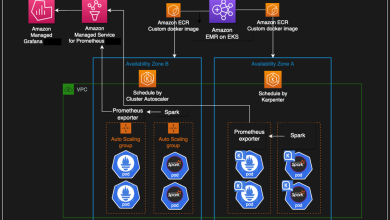
Trent Gillespie is a visionary thought leader at the forefront of the AI revolution, combining strategic insight with hands-on experience to help businesses navigate one of the most transformative periods in modern history.
As one of the UK’s most in-demand artificial intelligence speakers, Trent draws on his extensive background to guide leaders through the real-world applications of generative AI and automation.
Recognised among top business speakers, innovation speakers, and technology speakers, he has worked with startups and global corporations alike to unlock productivity, drive operational excellence, and futureproof their teams.
In this exclusive interview with The Champions Speakers Agency, the acclaimed leadership speaker shares actionable advice for business owners looking to adopt AI, empowers small enterprises to scale with limited budgets, and tackles the very real workforce shifts AI is creating today.
Q: For business leaders looking to integrate AI, where should the journey begin — and what foundational steps are essential for long-term success?
Trent Gillespie: Well, the first thing is you need to learn it yourself as a leader. I have found that a lot of the leaders in many organisations have deferred it to somebody else to figure out. So when I sit down with a new business that I’m launching AI into, the first task I do is I actually sit down with the whole leadership team — the C-suite, maybe even the board of directors — and I teach them how to use ChatGPT hands-on.
What I find is that they have never done that in any sort of detail, and so it’s important for them to do it, because then they begin to grasp how important that is as an organisation, and then how to even roll it out. They get really excited about it when they see what it can do. So, as a leader, it really begins with you. Figure out how to use it, become familiar with the tools and the capabilities, and you can spread it out throughout your organisation.
Then I think that the second thing that’s very, very important is to figure out why you want to roll it out and when. You want to not be that company that just says, “Oh, AI — we just need to roll it out and just give it off to somebody.” You need to say, “We want to roll out AI because we expect it’s going to give us X amount of benefit in Y amount of time.”
Maybe it’s productivity improvement, maybe it’s a particular team that needs to be able to automate a task — it could be any number of things. But be really clear about why you are doing it and in what time frame, and then set a goalpost. Say, “We want a plan that’s going to get that thing delivered by that time frame.”
If you approach it intentionally that way, it’s going to begin the biggest transformation I think your company will ever go through.
Q: With limited budgets, how can small and mid-sized businesses effectively harness the power of AI and see tangible results?
Trent Gillespie: So, for small businesses, they’ve now got access to these AI technologies that were previously very expensive — and they’re now cheap because of generative AI. And so it’s very easy for organisations to get started — just $30 a month or so for your employees.
The studies are showing that when you do that, your company can get immediate benefits — about 43% improvement in productivity gains out the door, just from being able to improve how you do some stuff. What I see working with customers is that their employees who are using it daily get about a 20% improvement in productivity. Daily employees — 20% productivity — for $30 a month. I mean, there’s really not an investment with that level of ROI.
So that’s how small businesses can do it. Start with just giving the tools, and then start evaluating the light automations. What I mean by that is, even within ChatGPT, there’s some light abilities to automate things — maybe it’s how to automate writing a template email that you send every single week, or preparing for a podcast, or whatever it is. Use the tool to accelerate those things.
And after you’ve got that figured out, go and buy some of the AI automation agents — again, $20–$30 a month — and all of a sudden you can automate your tasks with good reliability and scale. And pretty soon, what you’re going to have is every employee is a manager of AI agents for $20–$30 each, and the power of your company just goes up.
Q: Workforce disruption is a growing concern with the rise of AI. How do you respond to fears around job losses and industry upheaval?
Trent Gillespie: Well, it’s a real issue. To be frank, it is happening. People are losing jobs — I want to be really clear about that.
There was actually a situation that came up recently with me where I had a CEO of a marketing company reach out looking for some advice on AI and if they needed to get started. And I had to tell her that I thought her business was probably going to be disrupted in the next 12 months if she didn’t take action now. That’s not very far away. And of course, this wasn’t what this person expected and they were pretty caught off guard with it.
But the thing is — especially in industries like creativity and marketing — there’s a significant amount of change right now, and organisations are figuring out how to do things faster and cheaper. So you’ve got to be able to look at that, so you can avoid some of the job loss that might come.
But the way I prefer to look at it — and I really suggest people think about this — is you’re going to be getting rid of some of the stuff that’s not fun. Right? Writing the emails from scratch or writing a big long outline, when you can get AI to do it — that can save you a bunch of time.
But that means you can now invest your time into growth opportunities. And what I mean by that is, now you can go out and grow your business — come up with some new products and services that you can create, move into an adjacent market, whatever that is. Maybe it’s a new geography or just a different type of product line.
But what you get to be able to do now — to prevent the job loss — is to create those new things. And with AI, it’s never been cheaper to do that. Everything from coming up with the ideas to aligning your group and stakeholders to actually building the technology is cheaper than ever before in human history.
So take that work, get rid of the old stuff you don’t like, and start working on amazing growth opportunities.
Q: What makes AI adoption an urgent priority for businesses today — and why should leaders act now rather than wait?
Trent Gillespie: So the compelling reason is that your employees are already using it. I find that about 40% of employees in a company today — knowledge worker employees — are already using it to support their work, even if the leaders haven’t told them it’s okay to do it or given them any support.
And that leaves your organisation not only a little bit at risk — because they might not be doing the right stuff with your data — you’re missing out on the opportunity of it. Your employees are finding it useful because they’re using it and they see the value it’s giving.
So ideally, the leaders need to get out of the way. And instead of stopping adoption, empower them, and train them, and give them the support to use it in a really great way.





